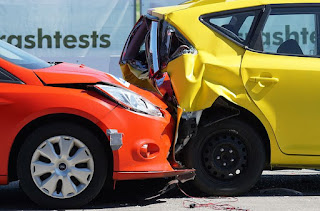insurances policies everyone should have

Introduction
Protecting your most important assets is an important step in creating a sound personal financial plan, and the right insurance policy will help you protect your profits and assets. In this article, we will look at five rules that you cannot do without.
Before we discuss further the types of insurance you should have, it is necessary to know what insurance is all about, and how it works.
What is insurance?
Insurance is a legal contract between two parties. insurance companies (insured) and individuals (insured). At the same time, the insurance company promises to compensate the insured for damage in the event of an unforeseen accident. An unexpected event is an event that results in a loss. This may result in the death of the policyholder or damage/destruction of property. This is called an unexpected event because it is not known what will happen. The insured pays insurance premiums under the contract of the insurance company.
How does insurance work?
The insurer and the insured receive a legal insurance contract called a policy. The insurance policy details the conditions and circumstances under which the insurance company pays insurance money to the insured or candidate. Insurance will protect you and your family from financial losses. As a rule, insurance premiums for basic types of insurance are much lower than what you pay. Insurance companies are forced to take on higher risks with lower premiums. Because very few insured people want to be insured. That’s why you can be guaranteed a lot of money at an affordable price.
Individuals or businesses can apply for insurance with an insurance company, but the provision of insurance is at the discretion of the insurance company. Insurance companies review claims to make decisions. Insurance companies usually refuse insurance.
There are various kinds of insurance today but in this article, we will be discussing some of the necessary insurance policies everyone should have.
Those insurance policies are.
1. Lon-term disability insurance
2. life insurance
3. Health insurance
4. Homeowners
5. Automobile insurance
1. Long-term disability insurance
The prospect of long-term disability is so daunting that some people ignore it. We all hope that “nothing will happen to me”, but do not cling to future strength and rely on the hope of profit. Instead, opt for disability insurance that provides enough coverage to allow you to enjoy your current lifestyle even if you can no longer continue working as you use to.
Cash benefits are paid to workers who are injured or disabled at work or work, such as short-term and long-term disability insurance, workers’ compensation, and workers’ compensation.
Most states require employers to provide insurance benefits to their employees. On the other hand, employees cannot sue their employer for negligence. While disability insurance and industrial accident insurance compensate for disability, disability insurance is not limited to injury or injury sustained at work or work.
2. Life insurance
protects those who are financially dependent. If you are experiencing financial hardship in the event of the death of a parent, spouse, child, or loved one.
Life insurance should be at the top of your list of essential insurance options. Think about how much you earn each year (and how many years you plan to keep working) and take action to make up for that income you owe. Study funeral cost factors as unexpected costs are burdensome for many families.
3. Health Insurance
The increase in health insurance premiums is the reason for the need for health insurance. A visit to the family doctor can be overwhelming. More serious injuries that result in hospitalization can cost you more than a week’s stay at a luxury resort. Injuries that require surgery can quickly cost five figures.
While the cost of health insurance drains almost everyone’s finances, the potential cost of not having coverage is much higher.
4. Homeowner’s insurance
Replacing a home is expensive. Proper home insurance can make this process less difficult. When shopping for shelving, look for shelving that includes the replacement of structure and contents in addition to the cost of living elsewhere while your home is being renovated.
Keep in mind that the cost of restoration should not be included in the price of the property because it already belongs to you. Depending on the age of the home and the amenities included in the home, the replacement may cost more or less than what you paid. To get an accurate estimate, find out how much your local builder costs per square foot and multiply that number by the area you need to replace. You must consider the cost of upgrades and special features. Also, make sure your insurance covers the cost of liability for any damage you may cause to your property.
Renter insurance
Renters also need assurance that they will be rescued in the event of a breakdown. Luckily, renters insurance is a type of property insurance available for people who rent or rent a property. This insurance covers personal belongings, third-party liability, and additional living expenses in case of damage.
There are two types of construction property insurance: home contents insurance and renter’s insurance.
However, homeowners insurance does not cover the renter’s personal effects. Therefore, a tenant needs to obtain insurance to protect their property. While renter’s insurance is different from homeowner’s insurance, the components are the same: coverage A for home, B for other buildings, C for personal property, D for additional living expenses (also known as loss of use), and third party liability E, F for medical expenses.
A and B coverage is often set at $0 because the tenant is not responsible for ensuring the home or other structures. Coverage C includes the tenant’s personal effects. Coverage D provides additional living expenses benefits upon request.
For example, if a tenant is evicted from their home because of a fire, D Coverage pays for living expenses elsewhere, such as in the home. B. Living and dining expenses. Cover E provides coverage for bodily injury and property damage caused by an insured person, while Cover F covers medical expenses for guests of licensed residents.
5. Automobile insurance.
Several levels of auto insurance are required by law in many places. Even if you drive old jewels for which you have no obligation and for which you have been paying for years, you should not miss the opportunity to insure your car.
If someone has an accident or their property is damaged, you may be subject to legal liability, which can result in the loss of all property. Events happen quickly, and the results are often tragic.
If you don’t have auto insurance or just buy the bare minimum you need, you can save a lot of money and put everything you have at risk. Beware of Insurance Shops Insurance products come in all shapes and sizes and offer many features, benefits, and prices. Shop carefully, read the rules, and consult with a licensed insurance company to make sure you understand coverage and prices.
Make sure the purchase rules fit your needs and only sign the dotted line after you’re satisfied with your purchase. Consider hiring an insurance broker. Because you can get policies from several insurance companies that will help you find the coverage that best suits your needs.
Ask your broker to provide you with multiple options so you can compare features, rules, and prices. Manage your defenses and get the right information to make decisions.
Some of the frequently asked questions about the insurance policy
What is life insurance? Life insurance for life is a life insurance policy that pays benefits to the insured person in the event of the death of the insured person. All types of life insurance are valid during the life of the insured person, while the premium is valid. In addition to benefits in the event of death, life insurance creates monetary value that the insured can use throughout his life.
What is universal life insurance?
Universal Life Insurance (UL) is a perpetual life insurance policy that allows policyholders to invest their cash value in a separate account containing exchangeable funds. This is a flexible policy that allows you to adjust premiums and death benefits. How to cancel insurance? Insurance companies often allow policyholders to opt-out of insurance over the phone. However, some require a written request.
What is umbrella insurance?
Umbrella insurance is liability insurance that provides additional coverage over and above the coverage limit of the current policyholder.
For example, if the damage exceeds the coverage of the policyholder’s property (such as a house or car), an umbrella policy provides additional liability coverage up to and including coverage. This type of insurance is best for people who have significant assets that can be seized.
How much does life insurance cost in a million dollars?
The cost of a $1 million life insurance policy depends on the type of life insurance issued (periodic or term), the age of the insured, the health of the insured, and other insurance factors.
This can range from hundreds of dollars to thousands of dollars. The best way to find out what the $1 million premium will be is to get a quote from a life insurance agent or broker.
What is the cash value of life insurance?
The cash value of a life insurance product is the movers of the premiums accrued on the insurance product. Cash value is the interest-bearing savings portion of a permanent life insurance policy that policyholders can access in the form of cash or credit withdrawals.
What is an insurance claim page?
The policy application page is the part of the insurance contract that contains general information about the policy. This page contains a list of policyholders, insured persons, sums, insured, and conditions.
Conclusion
Losses in life are inevitable, and the degree of their impact on our lives varies. Insurance reduces impact by providing financial benefits to recover losses.
There are many types of insurance, but some of them are the most important. Home or property insurance, life insurance, disability insurance, health insurance, and auto insurance are five types of insurance that everyone should have.






